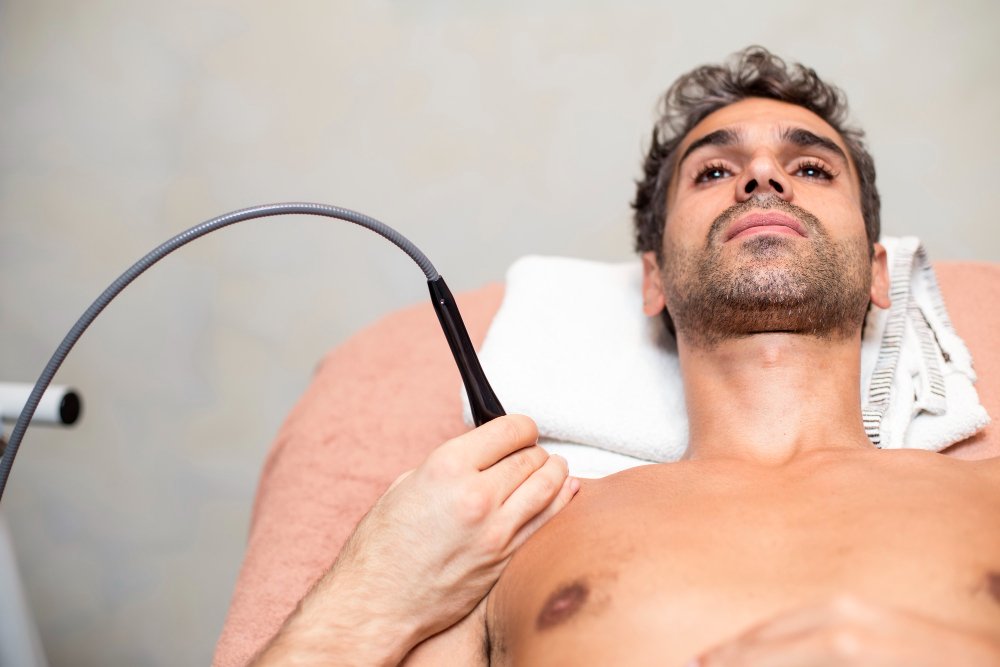Achieving a healthy, glowing complexion isn’t just about using expensive skincare products or following the latest beauty trends. It’s about understanding your skin, how it functions, and providing it with the proper care it needs. Your skin is the body’s largest organ, and it’s constantly exposed to environmental factors, making it susceptible to a variety of issues. Whether you’re dealing with acne, dryness, or simply want to maintain healthy, youthful skin, it’s important to understand the basic principles of skin health and how to properly care for it.
In this article, we will break down the essential aspects of skin health, including understanding your skin type, common skin problems, and actionable tips to achieve a glowing, radiant complexion.
1. Understanding Your Skin Type
The first step toward achieving healthy, glowing skin is knowing your skin type. Different skin types require different care routines, so understanding your own skin can help you choose the right products and routines.
There are five primary skin types:
1.1. Normal Skin
Normal skin is well-balanced and doesn’t tend to get too oily or too dry. People with normal skin typically have few to no blemishes and their skin feels smooth and comfortable. However, even normal skin requires basic care to stay healthy.
1.2. Oily Skin
Oily skin tends to produce excess sebum (natural oils), which can lead to shine, clogged pores, and acne breakouts. People with oily skin often need to focus on controlling oil production and keeping pores clear without stripping the skin of its natural moisture.
1.3. Dry Skin
Dry skin can feel tight, rough, or flaky. It may appear dull and sometimes prone to redness or irritation. People with dry skin may need to focus on adding moisture and preventing dehydration.
1.4. Combination Skin
Combination skin is a mix of oily and dry areas. Typically, the T-zone (forehead, nose, and chin) tends to be oily, while the cheeks and other areas may be dry or normal. Balancing both oily and dry areas requires special care and tailored products.
1.5. Sensitive Skin
Sensitive skin is prone to redness, irritation, and reactions to certain skincare products or environmental factors. It may sting, burn, or react with an allergic reaction when exposed to certain chemicals or ingredients.
2. Daily Skincare Routine for Healthy Skin
No matter your skin type, maintaining a consistent skincare routine is essential for keeping your skin healthy. A basic skincare routine involves cleansing, toning, moisturizing, and applying sunscreen. Here are the steps you should include:
2.1. Cleansing
Cleansing is the first step in any skincare routine. It helps to remove dirt, excess oils, and impurities that build up throughout the day. Choose a cleanser that suits your skin type. For example:
- Oily skin may benefit from a foaming or gel-based cleanser that can help control oil and clear pores.
- Dry skin needs a hydrating or cream-based cleanser that can gently remove dirt without stripping moisture.
- Sensitive skin should opt for a fragrance-free or mild cleanser that won’t irritate the skin.
2.2. Toning
Toners help to restore the skin’s natural pH balance after cleansing. They can also prepare the skin for better absorption of moisturizers and treatments. Look for a toner that suits your skin needs:
- Oily skin may benefit from a toner with salicylic acid or witch hazel to help clear pores.
- Dry skin needs a hydrating toner with ingredients like aloe vera, rose water, or glycerin.
- Sensitive skin should avoid alcohol-based toners and instead use soothing, alcohol-free formulas.
2.3. Moisturizing
Moisturizing is key to maintaining a healthy skin barrier. Even if you have oily skin, you still need to moisturize. Look for non-comedogenic (won’t clog pores) formulas for oily skin. Those with dry skin should go for richer creams or oils that can deeply hydrate.
- Oily skin should opt for a lightweight, oil-free moisturizer.
- Dry skin needs a heavier, hydrating moisturizer that locks in moisture.
- Sensitive skin should look for calming ingredients like chamomile, calendula, and oats.
2.4. Sunscreen
One of the most crucial steps for achieving a glowing complexion is wearing sunscreen daily. UV rays can cause premature aging, pigmentation, and even skin cancer. Always apply broad-spectrum SPF 30 or higher, even if you’re indoors or on cloudy days.
3. Targeted Treatments for Specific Skin Concerns
In addition to your basic skincare routine, certain treatments can help address specific skin concerns. Here are some common treatments for improving skin health:
3.1. Exfoliation
Exfoliating removes dead skin cells, which can make your skin appear dull and clogged. Exfoliation also allows your skincare products to penetrate deeper, enhancing their effectiveness. However, exfoliation should not be overdone, as it can irritate or dry out your skin.
- Oily skin may benefit from gentle chemical exfoliants containing AHAs (alpha-hydroxy acids) or BHAs (beta-hydroxy acids).
- Dry skin should use a mild exfoliant or opt for enzymatic exfoliants that don’t strip moisture.
- Sensitive skin should avoid harsh physical scrubs and stick to gentle, soothing exfoliants.
3.2. Face Masks
Face masks can provide an added boost to your skincare routine. They help address different skin needs depending on the ingredients. For example, clay masks are great for oily skin, while hydrating masks can provide moisture for dry skin.
- Oily skin can benefit from clay or charcoal masks that draw out impurities.
- Dry skin should look for hydrating masks with ingredients like hyaluronic acid or honey.
- Sensitive skin may benefit from calming masks that contain aloe vera, cucumber, or chamomile.
3.3. Serums
Serums are concentrated formulas designed to target specific skin concerns, such as fine lines, pigmentation, or acne. Serums are typically more potent than moisturizers and contain higher concentrations of active ingredients.
- Oily skin can benefit from a serum containing niacinamide or salicylic acid to control oil and acne.
- Dry skin may benefit from hydrating serums with hyaluronic acid or glycerin.
- Sensitive skin should opt for calming serums with ingredients like aloe or chamomile.
4. Lifestyle Factors for Healthy, Glowing Skin
Your skincare routine is important, but your lifestyle also plays a significant role in the health of your skin. Several lifestyle factors can contribute to or detract from achieving a glowing complexion.
4.1. Diet
A healthy, balanced diet rich in vitamins, minerals, and antioxidants can help nourish your skin from within. Include foods that promote healthy skin, such as:
- Vitamin C-rich foods like citrus fruits, strawberries, and bell peppers for collagen production and protection against free radicals.
- Healthy fats like omega-3 fatty acids found in fish, avocado, and nuts for maintaining skin elasticity.
- Antioxidants like green leafy vegetables, tomatoes, and berries to protect against sun damage and promote youthful skin.
4.2. Hydration
Drinking plenty of water is essential for keeping your skin hydrated from the inside out. Hydrated skin appears plump, radiant, and healthy. Aim for at least 8 glasses of water a day, and more if you’re active or live in a hot climate.
4.3. Sleep
Your skin goes into repair mode while you sleep, and getting enough rest helps your skin regenerate. Aim for 7-9 hours of quality sleep each night to help reduce signs of aging, minimize dark circles, and maintain a glowing complexion.
4.4. Stress Management
Chronic stress can take a toll on your skin, leading to issues like acne, eczema, and premature aging. Practicing stress-reducing activities such as meditation, yoga, or deep breathing exercises can improve your skin’s overall health.
5. Common Skin Concerns and Solutions
5.1. Acne
Acne is a common skin issue that affects people of all ages. It can be caused by excess oil production, clogged pores, or hormonal changes. Preventing acne involves a consistent skincare routine with non-comedogenic products, along with treatments like benzoyl peroxide or salicylic acid.
5.2. Hyperpigmentation
Hyperpigmentation refers to dark spots or uneven skin tone caused by sun exposure, acne scars, or hormonal changes. Use products containing ingredients like vitamin C, niacinamide, or retinoids to brighten skin and even out skin tone.
5.3. Fine Lines and Wrinkles
Fine lines and wrinkles are natural parts of aging, but they can be minimized with proper skincare. Use products that stimulate collagen production, such as retinoids, peptides, and antioxidants, and always wear sunscreen to prevent further damage.
Conclusion
Achieving a healthy, glowing complexion is a combination of proper skincare, good lifestyle habits, and understanding your skin’s unique needs. By following a consistent skincare routine tailored to your skin type, incorporating targeted treatments, maintaining a healthy diet and hydration, and managing stress, you can enjoy clear, radiant skin that glows from within.
Remember, everyone’s skin is different, so finding the right products and treatments that work for you may take time. Be patient, and always listen to your skin’s needs. With the right care and a little effort, you’ll be on your way to achieving a luminous, healthy complexion.




